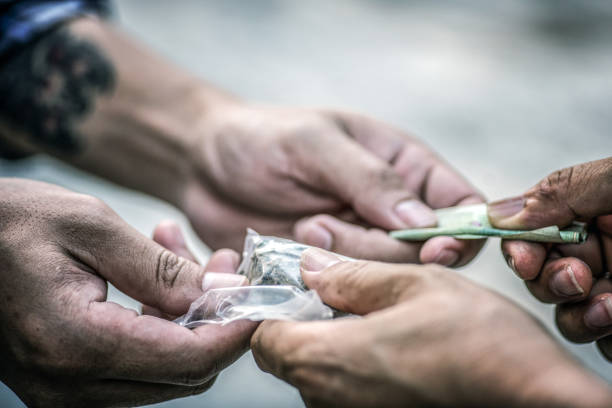
Councillor incensed by long-term inaction as Citizens’ Assembly on Drugs to commence next month
With notable irritation in his voice, Dublin City Councillor and former Lord Mayor of Dublin Christy Burke lays bare to me his indignation early on: “I’m pissed off speaking on drugs. Nothing is ever done. I swore I’d never speak about drugs again.”
This sentiment is nothing new to those familiar with his 40-year history of rehabilitation activism for drug addicts in his community of north inner city Dublin.
“I know ten young kids over the last seven years who I personally helped get into apprenticeships and who would otherwise have been on the corner selling,” he eagerly reminds me. In his defiant tone, Clr Burke is keen to stress the very real possibility for change that has, up to now, been barely achievable in what he regards as a system not fit-for-purpose.
The Citizens’ Assembly on Drugs Use is set to commence on April 14th, chaired by the former Health Service Executive CEO Paul Reid on appointment by Taoiseach Leo Varadkar.
The Assembly will consist of 99 members of the general public headed by Mr Reid.
According to an official press release by the Government Information Service, the Assembly will work particularly closely with youth to gain a more intimate understanding of the real impacts of drugs on young people and incorporate a plan of action based on international standard practice.
In Cllr Burke’s eyes, this represents nothing but habitual government conjecture without solid endeavour to tackle the issue of rampant drug dealing and fatal drug overdosing in the inner city.
“We’re looking at a Citizens’ Assembly which should be focusing on treatment centres and residential centres throughout Ireland rather than potentially decriminalising possession of small amounts of drugs,” he scoffs hopelessly.
Disenfranchisement
“The thing is, the Citizens’ Assembly don’t have to face the electorate,” he adds, highlighting the sense of disenfranchisement felt by members of a working-class community decimated by the drugs epidemic and allegedly abandoned by an out-of-touch political elite.
“I get upset about it because in my own family, there have been lives lost to addiction. I know another family who buried five of their own due to drug overdoses.”
Such is this loss of faith in the authorities among the working class on this issue, Cllr Burke cites the realistic ineffectiveness of the health system which is contributing to the ongoing homelessness crisis through long waiting lists: “When you have an addict and they have a desire to stop, that desire doesn’t last 2-3 weeks. By the time they get to an addiction counselor, they’ll have missed rent and ended up homeless. Nobody is listening.”
Homelessness is a common contributing factor to the onset of substance abuse due to an inability to attain a medical card or claim social welfare payments.
The drug epidemic is as much a mental health crisis as it is a physiological one, Cllr Burke asserts: “If I, God forbid, had cancer, I’d go to a hospice. If I’ve a heroin addiction, there’s no bed for me.”
Statistics published by the Health Research Board in 2017 appear to reinforce Cllr Burke’s argument that drug addiction in inner city Dublin remains a consistently unaddressed issue throughout the decades.
They show 376 deaths by drug overdose, 60% of which involved a cocktail of four or more drugs. He protests that his call for a greater focus on residential addiction treatment centres appears to regularly fall on deaf ears.
Drug decriminalisation
Cllr Burke opposes the decriminalisation of drug possession set to be discussed by the Citizens’ Assembly next month, although he strongly believes that the disabling of gangs who run drug empires is the best way forward to protect vulnerable addicts.
However, his faith in the government to effectively take them down is limited: “I know Fianna Fáil don’t give a ****. None on the left, right or centre will say or do anything.” He firmly disagrees with the alternative – decriminalising drugs – a judgment which he says will not obstruct the supply of drugs into society and will perpetuate addictions.
I wrote to him afterwards and told him I’d love him to meet mothers of people who’ve died by drugs and ask them to say what they think about decriminalisation because their sons are in graves
Cllr Burke’s demeanour becomes increasingly agitated while his train of thought leads him into sullen resentment.
He addresses Fianna Fáil TD Paul McAuliffe’s call for drug decriminalisation on a recent episode of Virgin Media’s The Tonight Show: “I wrote to him afterwards and told him I’d love him to meet mothers of people who’ve died by drugs and ask them to say what they think about decriminalisation because their sons are in graves.”
Cllr Burke wishes to end the stigma around inner-city drug addicts, referring to his time as Lord Mayor when he would visit prisons and meet inmates put away for possessing drugs: “Guys would tell me they took up drugs on the streets but really just wanted to have a job and a girl and simply converse with somebody.”
His vision for rehabilitation in Ireland is achievable, though he feels his experience has caused him to feel that the Citizens’ Assembly next month will be more of the same.
Keith Kelly
Image credit: Getty Images
